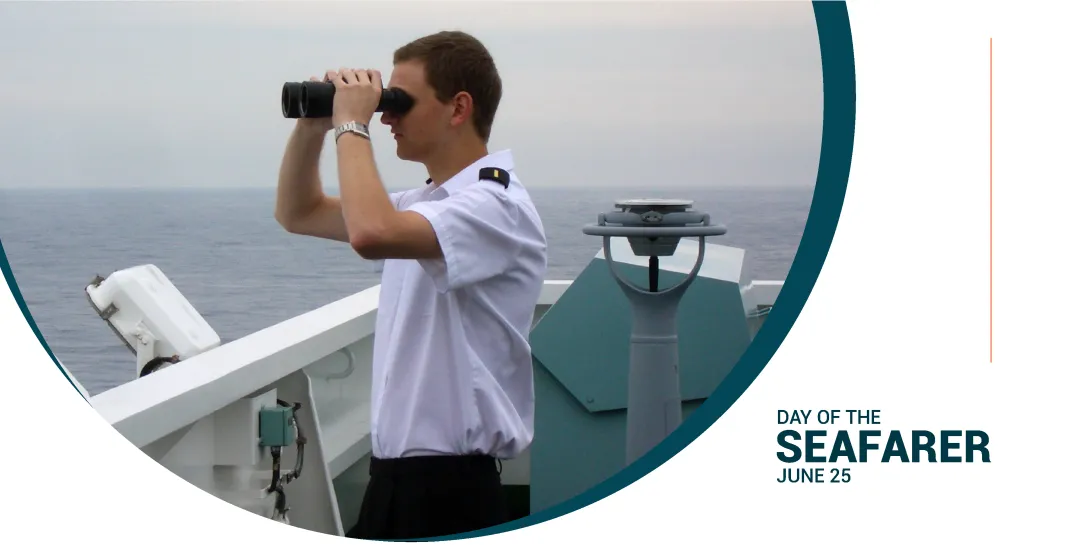In this article, RightShip’s CPO, Christopher Saunders, shares his view on the push for increased maritime industry efficiency, and the impact this has on our seafarers ahead of Day of the Seafarer, taking place on Friday 25th June.
Increasing efficiency is a key focus for all members of the maritime industry in 2021, with several regulators and industry bodies calling for strengthened decarbonisation of vessel transportation, cleaner ports and improved renewable solutions. While it’s quite right to focus on efficient transportation of cargo, the human element of shipping must not be forgotten.
It takes a dedicated team of hard working, professional men and women operating as a strong team to complete a safe and efficient voyage. Technology and innovation is essential, but it is only as good as the people who implement and manage it.
For example, the role of electrical officers and engineers has changed a lot over the past 20 years with the wider use of automation. This will continue at an even greater pace with the increasing new equipment, sensors and software being fitted onboard vessels, all of which needs maintenance to provide reliable data.
It must be remembered; it is still possible to operate an efficiently designed vessel with lower polluting fuels in an inefficient manner. Take an electric car being driven like a race car, with the air-conditioning running on full and the tyres incorrectly inflated. You will need to recharge sooner and the environmental impact increases.
Performance gains through education and training
There are performance gains (or losses) that can occur because of the crew’s skill, attention and dedication. If operators expect their crews to run vessels as efficiently as possible, they must be given the support and training required to do so. In addition, their social and welfare needs must be met throughout any voyage.
Take for example the introduction of ECDIS and electronic charts. They began appearing in earnest on bridges across the globe in the mid-2000s, but support for the crew in how to use this revolutionary new equipment was in short supply. Crews became stressed about having to learn on the job with little support. It also increased the pressure and worry of Port State Control and vetting inspections as this unfamiliar piece of equipment had a high risk of attracting a negative observation from the Inspector.
It has been a bumpy ride since and thankfully regulation, training and company policies have evolved, but there have been numerous ECDIS-related groundings along the way due to operation errors and we continue to see deficiencies in this area.
Companies can do their bit to ensure Management of Change processes are followed with the introduction of new technology to ensure the crew onboard at the time of install, as well as the future crews feel as supported as possible to make best use of the technology and to ensure it does not become a distraction that affects Safety and Wellbeing onboard.
A healthy, well rested, valued and motivated crew are more likely to operate a vessel well. Likewise, training, company culture and pride in one’s work come into play.
On LNG vessels you often retain some cargo as heel to both keep the cargo tanks cool on the ballast passage (-160 degrees) and to use as fuel. I recall from my time at sea a voyage where we managed to conserve a small amount of heel for two days longer than expected through careful planning, skilful control of the cargo system and a little extra effort from the crew.
This ultimately saved 150-tons of fuel resulting in a cost saving to the charterer and a reduction in overall emissions for the voyage. We all felt a sense of pride of a job well done. A lot can be achieved with a happy and motivated crew.
As we continue to work towards IMO targets in 2030 and 2050, the impact of efficiency expectations on crews must be considered as part of the implementation process. In the coming years, we will likely see more digitisation of processes and increased live data insights, but the successful roll out of such technology relies on continuous training and support for our people working at sea.
RightShip is donating to various seafarer centres around the world to support Day of the Seafarer. There are many worthwhile charitable causes to donate to, including the Mission to Seafarers who provide far reaching resources to support seafarers worldwide.
